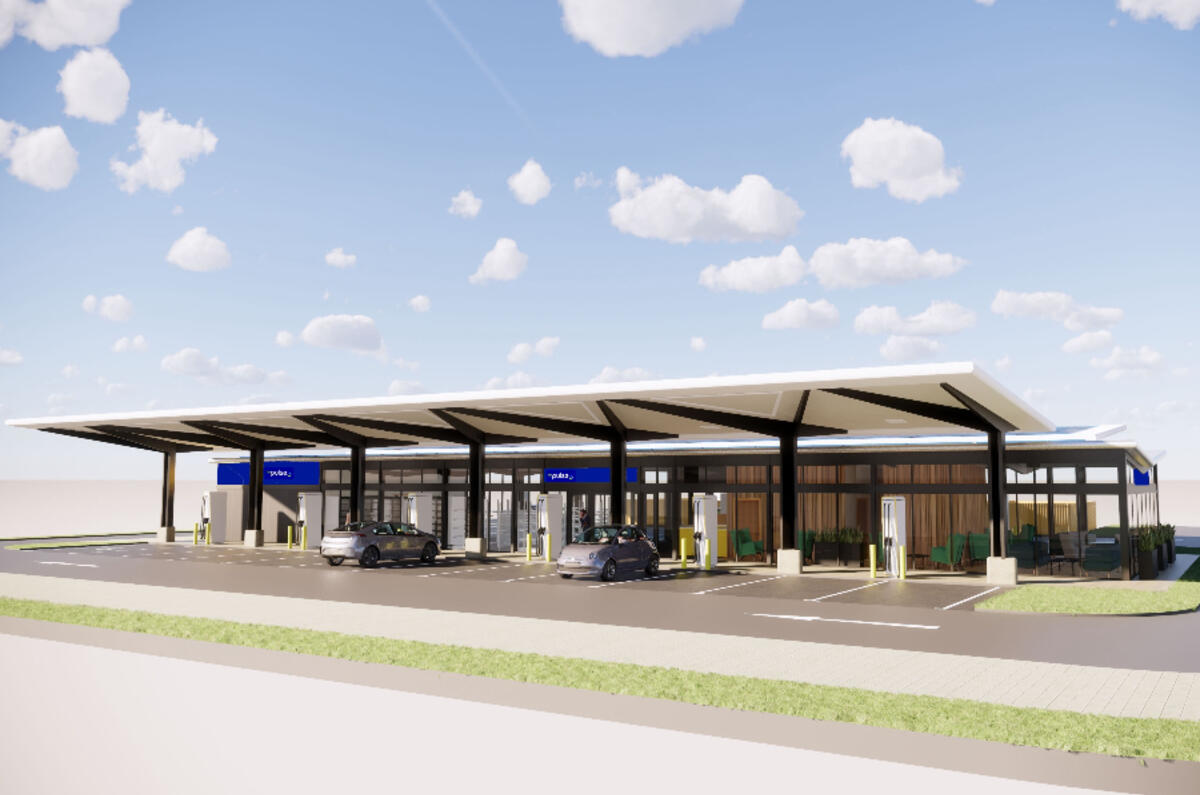BP Pulse plans to double the number of EV chargers in its UK network to 16,000 by 2030, with ultra-fast charging hubs set to appear on high-traffic roads such as motorways.
The charging company - formerly known as BP Chargemaster - will work in partnership with The EV Network (EVN), a charging infrastructure development company.
The first of these charging hubs will open later in 2021 with 24 individual charging points, although the location of the site has yet to be revealed.
EVN will develop the facilities, some of which will offer drivers food, drink and other convenience services while their EVs charge.
“We're building a charging network that will give consumers the confidence to make the switch to EVs, knowing they can get the charge they need in the right places,” said BP Pulse CEO Matteo de Renzi.
“We’re taking another step forward in our commitment to make ultra-fast charging widely accessible across the UK, including in easy reach of the motorway network.
“These new hubs will complement BP Pulse's existing plans to expand the number of ultra-fast chargers on BP's forecourts and it’s exciting to be launching this new additional option for drivers.”
BP Pulse estimates that charging on its network will increase 30-fold by 2030.
“This ground-breaking agreement with BP Pulse has got 2021 off to a racing start,” said Reza Shaybani, co-founder and CEO of EVN. “As the largest public charge point operator in the market, BP Pulse is a perfect partner for EVN to deliver critically required EV charging infrastructure nationwide.
“Together we will be fuelling growth in a vital part of the UK’s green economy, making a reliable national network of EV charging stations a reality for fast growing number of electric vehicle drivers.”
Meanwhile, BP has acquired a 33.3% stake in Digital Charging Solutions (DCS) - a company that develops charging software for car manufacturers - alongside the BMW Group and Daimler, the parent company of Mercedes.
DCS already boasts 228,000 charging points across 32 countries in Europe, and the addition of the BP Pulse network will give some drivers access to a further 8700 chargers. These include ultra-fast chargers capable of delivering up to 150kW and BP aims to have 250 such chargers in operation in the UK by the end of 2021, with another 500 in Germany before the year is out.
Services such as ‘Mercedes me Charge’, ‘BMW Charging’ and ‘MINI Charging’ are already operated by DCS, allowing drivers to simply plug in and charge without any of the complications often experienced by plug-in vehicle users.
Earlier this year, BP Pulse committed £2 million to help local authorities upgrade and replace EV chargers across the UK.
It has already invested more than £400,000 in upgrading more than 50 existing chargers, which were typically installed using government funding around 10 years ago and are owned by local authorities.
Some of these older devices are now “no longer usable” by EV drivers, according to BP Pulse, which aims to “radically improve” the country’s oft-criticised charging network.




Join the debate
Add your comment
That does seem to be a tiny investment in technology that will be outdated in the blink of an eye. It would be interesting to know more about BP's strategy and business model for BP Pulse.
I feel uneasy about having BP and Shell muscling in on the provision of EV chargers across the country. Obviously they can forsee the rug being slowly pulled from under their previous profiteering with petrol and diesel supplies. Lest we forget, these are the companies that increase pump prices immediately crude oil prices go up, but, strangely, are extremely tardy in reducing them when crude oil goes down. They are also guilty of constantly charging rip-off prices at motorway service stations where they perceive a captive audience well away from supermarket filling stations. I hate to think what excessive electricity charges they'll be scheming for EV users.
A good starting point for all companies coming into this market is not having to be member and the charger accepts credit cards, that is it.